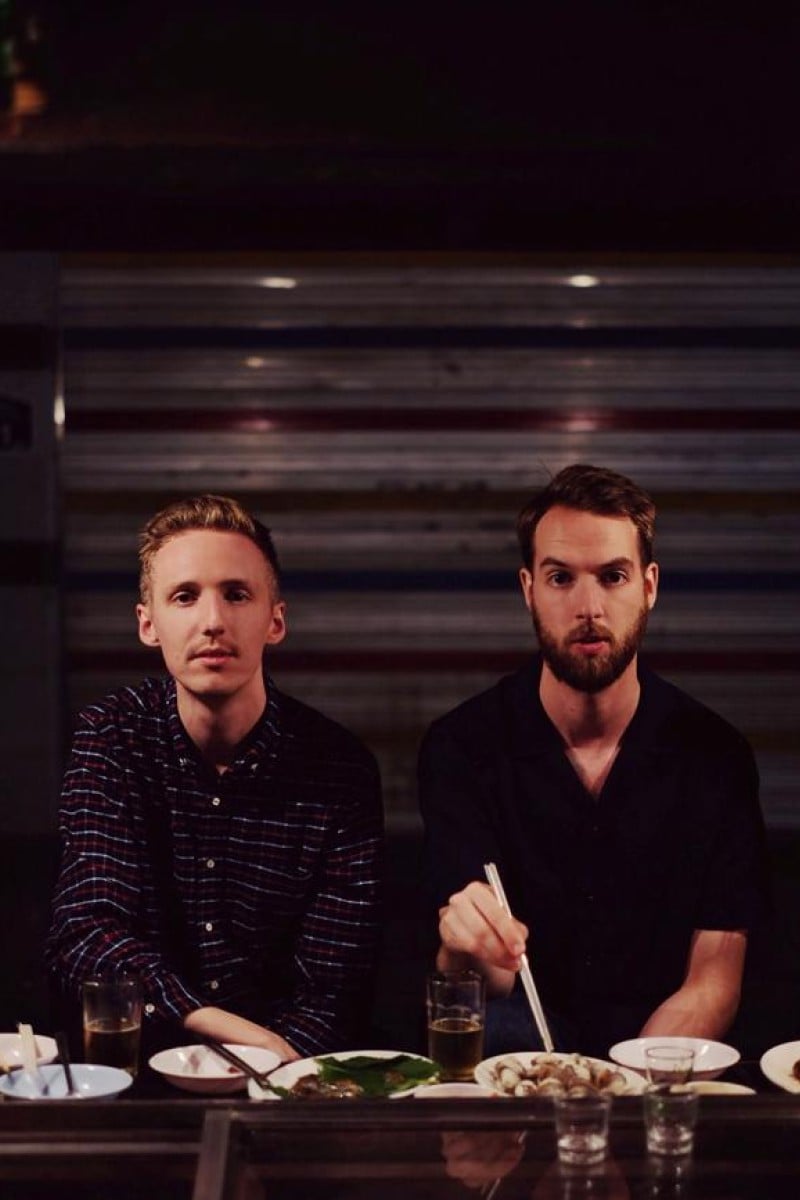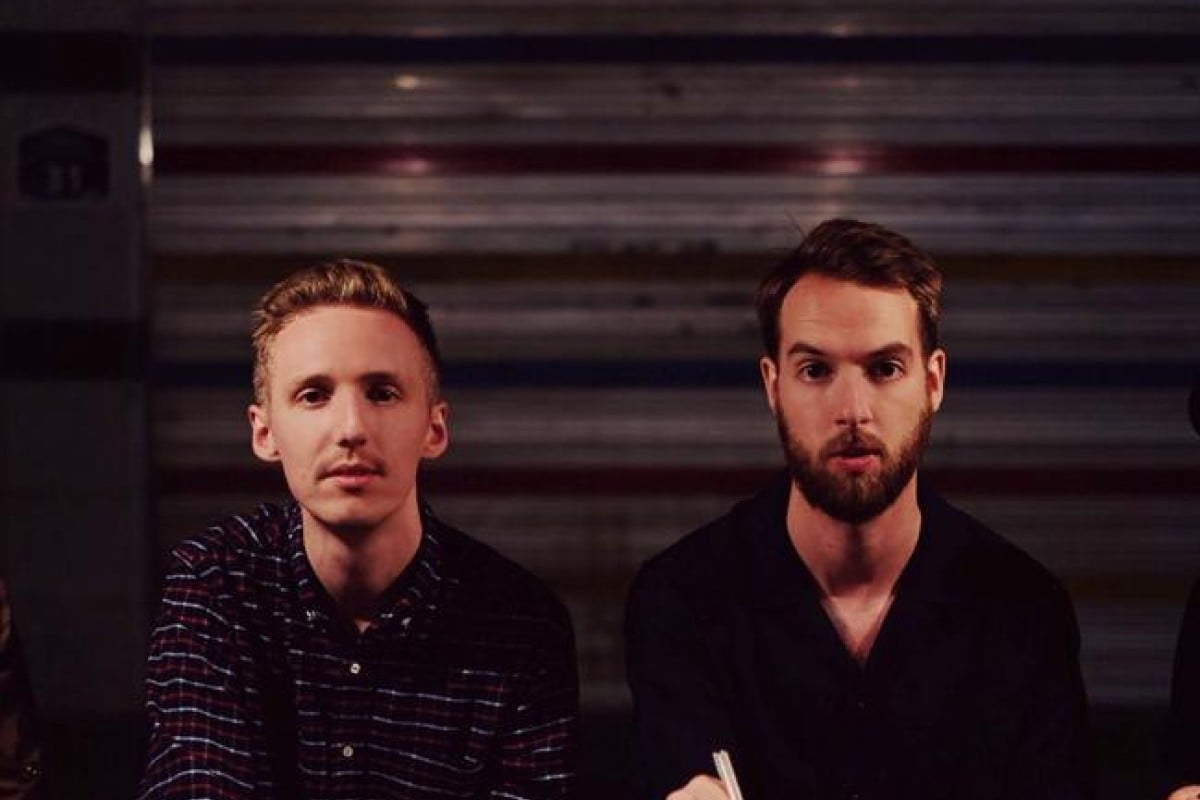
Rising British Electropop duo Honne on being inspired by Radiohead, and keeping it simple despite their immense global success
The path to international stardom may be lit for British duo Honne, but they prefer to take the side roads
 James Hatcher (left) and Andy Clutterbuck came up with their band name in Japan
James Hatcher (left) and Andy Clutterbuck came up with their band name in JapanLast Wednesday, British electropop duo Honne played a sold-out show at the MacPherson Stadium.
A few hours before fans began pouring into the stadium for what promised to be a electrifying set, Young Post found the musicians chilling in their hotel room, 38 floors above the busy streets of Mong Kok.
It’s hard to imagine that singer Andy Clutterbuck and producer and keyboardist James Hatcher, are major label artists who have more than 300,000 followers on YouTube, and have performed at some of the biggest music festivals in the world – they just look so effortlessly thrown together. Hatcher’s hair is slicked back, James Dean-style, while Clutterbuck has perfected the dishevelled look. Both are refreshingly down to earth.
Honne performs to a sold-out crowd at their first-ever Hong Kong concert
Before we get into their music, we have to ask about their name. Honne, it turns out, is a Japanese word that means “true feelings”.
We picked it because it fits well with the theme of our songs, as we more often than not write about our personal experiences,” says Clutterbuck. “Also, we were in Japan a lot when we first started, so the name just stuck.”
“But, every time we go to Japan we’ll have to say ‘Hone-neh’ instead of Honne, which is how we would normally pronounce it,” he laughs.
The two met while studying music at university, and they soon bonded over their love for English rock band Radiohead. “They show a lot of development and evolution with each album [they produce] – starting with Britpop then transitioning into more experimental and electronic music,” he says. “We also studied their pay-what-you-want business model, and our minds were blown.”
Taking inspiration from Radiohead, the duo became keen on exploring new ways of making music, without the use of expensive equipment or professional recording studios.
“We try to maximise the time we have in the studio by only going when certain things cannot be done at home – it’d be silly to spend 500 quid [HK$5,200] a day just to write songs,” says Clutterbuck. “Besides, it’s too much pressure.”
In the early days, when Hatcher was still working as a guitar teacher, he’d try to squeeze in mini songwriting sessions whenever he could.
“If a student didn’t turn up, I’d write songs for Honne,” he says.
But even after signing a record deal with Atlantic, whose parent company Warner Music Group is one of the biggest conglomerates in the music industry, the duo still try to keep things simple.
In fact, one of their biggest hits to date, Day One, which has just under 30 million streams on Spotify, came about in an unexpected way.
“We wrote Day One with jazz pianist Reuben James; I recorded a demo by just hovering my iPhone over the piano, which I then emailed to Andy who was sitting in his home studio upstairs,” says Hatcher.
While these days we might associate electronic music with virtual keyboards and synthesisers, Honne still prefer using old-school analogue synths, such as the Dave Smith Prophet ’08. “It’s an analogue synth with an digital interface, which allows us to save the sounds we’ve created and use them for our concerts,” says Baxter.
“Analogue synthesisers have knobs you can twist so you can actually feel what you are doing,” he adds. “It’s hard to get [virtual instruments] to sound good – and it’s never quite the same, either.”
As for their advice to any budding songwriters, the duo say it’s always a great idea to work with other writers and get feedback from others.
“Collaborations between different writers are quite the norm these days, and it’s good to always have someone you can bounce ideas off of,” says Clutterbuck. “We always ask friends to rank our songs in order of their preference.”
